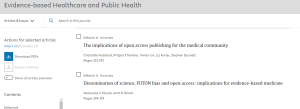
How Attacks on Inclusive Science Harm Us All
What happens when politics targets science? A new congressional report lays bare the consequences—and it’s far more than just budget line items or bureaucratic shifts. It’s about silencing entire communities, threatening national security, and stalling our collective progress.
In response to a politically motivated document known as the Cruz Report, the House Committee on Science, Space, and Technology’s Democratic staff released Defending Hidden Figures—a 2025 staff report exposing the technical flaws, ethical failures, and real-world consequences of efforts to defund science that centers equity, diversity, and inclusion (DEI).
Let’s unpack what’s happening and why it matters for everyone—from rural students dreaming of STEM careers to public health professionals trying to create a healthier, more just future.
The Cruz Report: A Misguided Attack on Equity in Science
In late 2024, Senator Ted Cruz claimed that over 10% of all National Science Foundation (NSF) grants awarded under the Biden-Harris administration were “DEI” or “neo-Marxist” in nature—labeling over $2 billion in funding as ideologically suspect. His database, published in early 2025, flagged projects for using terms like “diversity,” “inclusion,” or simply for supporting students at Historically Black Colleges and Universities (HBCUs) or Hispanic-Serving Institutions (HSIs).
The reality? These projects were not pushing ideology—they were advancing legally mandated goals of scientific excellence, economic competitiveness, and public welfare. In fact, the NSF is required by law to consider how research benefits society—a principle known as “broader impacts,” included in federal statute since 2010.
As Defending Hidden Figures outlines, most of the projects flagged by Cruz were misidentified. Some were marked simply for mentioning “female leopard seals” or for studying brain concussions—because the researchers also happened to mentor underrepresented students or conduct outreach to rural communities. In many cases, Cruz’s team failed to read their own data correctly.
Why Equity in STEM Is a National Security Issue
This isn’t just about fairness—it’s about our future. The NSF funds research and workforce development programs across the country, often focusing on regions and groups historically excluded from STEM careers. Here’s why that matters:
- Only 26% of science and engineering jobs are held by women, though women make up half the U.S. population.
- Black and Hispanic Americans remain severely underrepresented in STEM fields, despite making up over 30% of the population.
- Rural communities, which include 14% of Americans, face chronic gaps in access to STEM education and opportunities.
When we invest in broadening participation in STEM, we tap into talent that would otherwise be left out—helping fuel innovation, economic growth, and a globally competitive workforce.
Defunding these initiatives isn’t saving taxpayer dollars. It’s sabotaging the pipeline that trains our next generation of scientists, engineers, and health professionals.
Erasing DEI = Erasing Data
The Cruz Report sparked a wave of censorship at the federal level. Under executive orders from the Trump administration, the NSF removed public-facing documents, deleted diversity-focused web pages, and paused funding access. Researchers were left in limbo—unsure whether words like “community,” “gender,” or “race” would disqualify their proposals.
One of the most chilling moments? The NSF was ordered to review 10,000 existing grants for politically disfavored terms.
These are not neutral acts—they’re political purges that dismantle decades of progress, violate legal mandates like the CHIPS and Science Act, and chill the scientific community into silence.
Real People, Real Harm: The Hidden Figures at Risk
The report gets its name from a truth we often forget: Behind every research grant is a person—or community—working to make science more inclusive and impactful. And these hidden figures are now under attack.
🔹 Sexual harassment prevention grants were called “far-left ideology,” even though studies show women in male-dominated STEM fields are three times more likely to be raped.
🔹 STEM outreach programs at schools, libraries, and museums were flagged just for trying to engage underserved students.
🔹 A $15 million NSF grant to the University of Texas at El Paso, a Hispanic-Serving Institution, was jeopardized—despite being focused on workforce development in aerospace and defense.
To put it plainly: If Senator Cruz’s tactics succeed, we risk not just losing research, but losing people—students, scientists, and future innovators—who no longer see a place for themselves in science.
Science Must Serve Everyone—Not Just the Powerful
At its core, this is a story about who gets to shape the future. Will science serve only the elite, or will it reflect and benefit the full diversity of America?
The Defending Hidden Figures report is a call to action—not just for lawmakers and agency staff, but for anyone who believes in facts, fairness, and the promise of public science.
In the words of Representative Valerie Foushee, these attacks aren’t just about keywords. They’re about “tossing out all research that has anything to do with people who aren’t white, able-bodied men.”
If we allow that vision of science to prevail, we all lose.
What You Can Do
🟢 Explore our dashboard reviewing NIH cancellations.
🟢 Support science that reflects America. Speak out in support of equitable research funding. Contact your representatives.
🟢 Stay informed. Subscribe to newsletters like This Week in Public Health for science reporting that centers justice, equity, and access.
🟢 Share this blog. Help shine a light on what’s really happening. The future of public science depends on public voices.


